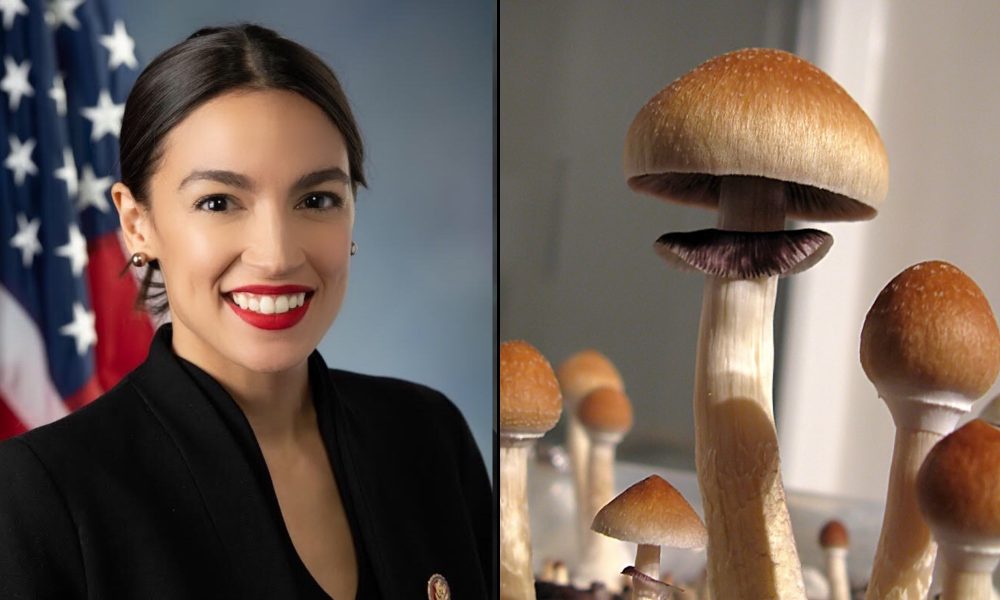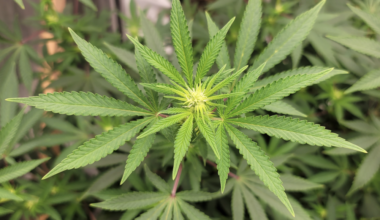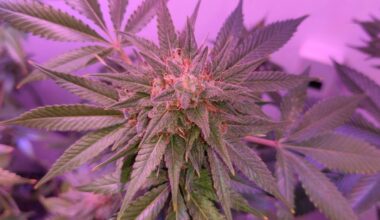A bipartisan group of congressional lawmakers is circulating a letter to build support for a spending bill amendment they’re introducing this week that would protect all state and tribal marijuana programs from federal interference—going beyond the existing measure that shields only medical cannabis states that’s currently enacted into law.
The amendment and its supporting Dear Colleague memo, which were shared with Marijuana Moment, is being led by Reps. Earl Blumenauer (D-OR), Tom McClintock (R-CA), Eleanor Holmes Norton (D-DC) and Barbara Lee (D-CA).
The lawmakers explained that the proposed amendment to spending legislation would add “language preventing the Department of Justice from using any funds appropriated by Congress to enforce federal laws regarding activities that are legal under state, territorial, or tribal law with regard to marijuana, regardless of whether the marijuana laws are recreational or medicinal.”
This language has been proposed in past sessions as well, passing the House last year and in 2019. But it was not attached to final appropriations legislation sent to the president’s desk under GOP control of the Senate. Now that Democrats have a slim majority in the chamber, advocates are optimistic that it could finally be enacted.
As it stands, a spending bill rider has renewed each year since 2014 that offers the protection to states with medical cannabis programs. This amendment would expand that protection at a time when more and more states are opting to legalize marijuana for adult use. Four states—Connecticut, New Mexico, New York and Virginia—legalized for recreational purposes this year alone.
“To date, 48 states have enacted laws that, to varying degrees, relax their prohibitions against the use of marijuana or its components, such as CBD oil. Of those, 37 states have medical marijuana programs, and 18 of those have adult-use programs,” the lawmakers wrote to colleagues. “Most of these laws were decided by ballot initiatives. We believe that the federal government should not interfere with these programs and the will of the citizens of these states.”
Here’s the text of the proposed amendment:
1 SEC _. None of the funds made available by this Act to the Department of Justice may be used, with respect to any of the States of Alabama, Alaska, Arizona, Arkansas, California, Colorado, Connecticut, Delaware, Florida, Georgia, Hawaii, Illinois, Indiana, Iowa, Kansas, Kentucky, Louisiana, Maine, Maryland, Massachusetts, Michigan, Minnesota, Mississippi, Missouri, Montana, Nebraska, Nevada, New Hampshire, New Jersey, New Mexico, New York, North Carolina, North Dakota, Ohio, Oklahoma, Oregon, Pennsylvania, Rhode Island, South Carolina, South Dakota, Tennessee, Texas, Utah, Vermont, Virginia, Washington, West Virginia, Wisconsin, and Wyoming, or with respect to the District of Columbia, the Commonwealth of the Northern Mariana Islands, Guam, Puerto Rico, or the United States Virgin Islands, to prevent any of them from implementing their own laws that authorize the use, distribution, possession, or cultivation of marijuana.
1 SEC __. None of the funds made available by this Act to the Department of Justice may be used to prevent any Indian tribe (as such term is defined in section 4 of the Indian Self-Determination and Education Assistance Act (25 U.S.C. 5304)) from enacting or implementing tribal laws that authorize the use, distribution, possession, or cultivation of marijuana.
“There have been no substantive changes to the amendment from when it passed on the floor of the House of Representatives with bipartisan majorities in 2019 and 2020,” the Dear Colleagues letter says.
Lawmakers who wish to cosponsor the amendment are being asked to contact Blumenauer’s office by the close of business on Thursday.
—
Marijuana Moment is already tracking more than 1,100 cannabis, psychedelics and drug policy bills in state legislatures and Congress this year. Patreon supporters pledging at least $25/month get access to our interactive maps, charts and hearing calendar so they don’t miss any developments.![]()
Learn more about our marijuana bill tracker and become a supporter on Patreon to get access.
—
The first time the House passed the more sweeping protections to cover state recreational marijuana laws was in 2019, and members approved it along largely bipartisan lines.
The appropriations process this session has seen numerous drug policy reform provisions included in bill text and attached reports—including protecting banks that work with marijuana businesses, encouraging government agencies to reconsider policies that fire employees for use and explore research into the medical value of psychedelics and stopping immigrants from being deported for cannabis, among other issues.
Separately, the full House of Representatives could vote next week on amendments to large-scale minibus appropriations legislation that would make it so marijuana possession or consumption could not be used at the sole basis for denying people access to public housing.
For the Commerce, Justice, Science, and Related Agencies Appropriations bill where the new marijuana state protection language could be attached, amendments are due by Friday and the House Rules Committee is set to make a rule next week, after which point the legislation and any amendments that are ruled in order will move to the floor.
Read the full text of the Dear Colleagues memo on the marijuana protections amendment below:
Dear Colleague,
Please join in cosponsoring the Blumenauer-McClintock-Norton-Lee amendment to H.R. 4505, the Commerce, Justice and Science Appropriations bill, which would amend the legislation to include language preventing the Department of Justice from using any funds appropriated by Congress to enforce federal laws regarding activities that are legal under state, territorial, or tribal law with regard to marijuana, regardless of whether the marijuana laws are recreational or medicinal. Amendment text is included at the conclusion of this dear colleague.
To date, 48 states have enacted laws that, to varying degrees, relax their prohibitions against the use of marijuana or its components, such as CBD oil. Of those, 37 states have medical marijuana programs, and 18 of those have adult-use programs. Most of these laws were decided by ballot initiatives. We believe that the federal government should not interfere with these programs and the will of the citizens of these states.
There have been no substantive changes to the amendment from when it passed on the floor of the House of Representatives with bipartisan majorities in 2019 and 2020.
GOP Congressman Bulldozes Marijuana Grow Sites Along With Police
Medical Disclaimer:
The information provided in these blog posts is intended for general informational and educational purposes only. It is not a substitute for professional medical advice, diagnosis, or treatment. Always seek the advice of your physician or other qualified healthcare provider with any questions you may have regarding a medical condition. The use of any information provided in these blog posts is solely at your own risk. The authors and the website do not recommend or endorse any specific products, treatments, or procedures mentioned. Reliance on any information in these blog posts is solely at your own discretion.







